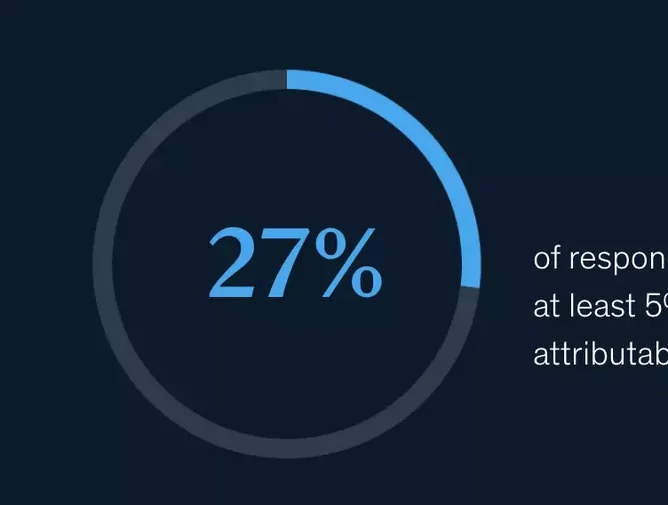McKinsey survey shows adoption of AI impacting bottom line

The results of our latest McKinsey Global Survey on AI indicate that AI adoption continues to grow and that the benefits remain significant— though in the COVID-19 pandemic’s first year, they were felt more strongly on the cost-savings front than the top line. As AI’s use in business becomes more common, the tools and best practices to make the most out of AI have also become more sophisticated.
We looked at the practices of the companies seeing the biggest earnings boost from AI and found that they are not only following more of both the core and advanced practices, including machine-learning operations (MLOps), that underpin success but also spending more efficiently on AI and taking more advantage of cloud technologies. Additionally, they are more likely than other organisations to engage in a range of activities to mitigate their AI-related risks — an area that continues to be a shortcoming for many companies’ AI efforts.
AI adoption and impact growing globally, with China and India leading the way
A majority of survey respondents now say their organisations have adopted AI capabilities, as AI’s impact on both the bottom line and cost saved is growing.
Findings from the 2021 survey indicate that AI adoption is continuing its steady rise: 56 per cent of all respondents report AI adoption in at least one function, up from 50 per cent in 2020. The newest results suggest that AI adoption since last year has increased most at companies headquartered in emerging economies, which includes China, the Middle East and North Africa: 57 per cent of respondents report adoption, up from 45 per cent in 2020. And across regions, the adoption rate is highest at Indian companies, followed closely by those in Asia-Pacific.
As we saw in the past two surveys, the business functions where AI adoption is most common are service operations, product and service development, and marketing and sales, though the most popular use cases span a range of functions. The top three use cases are service-operations optimization, AI-based enhancement of products, and contact-centre automation, with the biggest percentage-point increase in the use of AI being in companies’ marketing-budget allocation and spending effectiveness.

The results also suggest that AI’s impact on the bottom line is growing. The share of respondents reporting at least 5 per cent of earnings before interest and taxes (EBIT) that’s attributable to AI has increased year over year to 27 per cent, up from 22 per cent in the previous survey.
And while AI’s revenue benefits have held steady or even decreased since the previous survey — especially for supply-chain management, where AI was unlikely to compensate for the pandemic era’s global supply-chain challenges — the opposite is true of costs. Respondents report significantly greater cost savings from AI than they did previously in every function, with the biggest year-over-year changes in the shares reporting cost takeout from using AI in product and service development, marketing and sales, and strategy and corporate finance.






